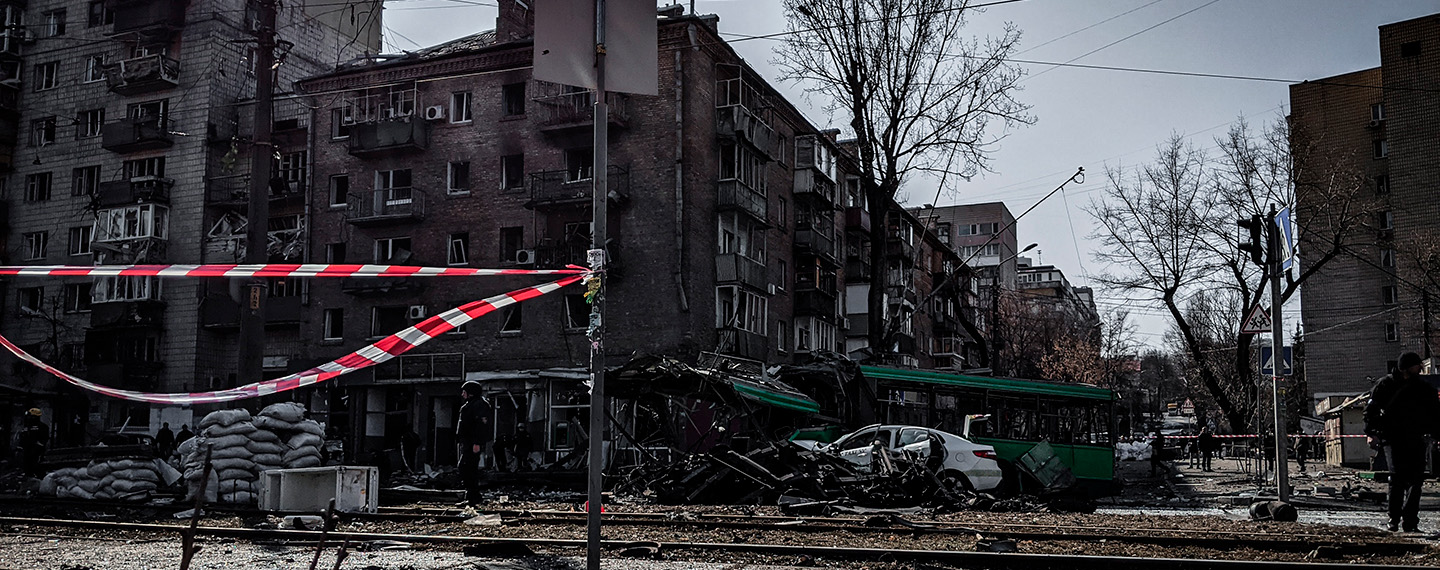This war is between Russia and Ukraine. But it is also a conflict between Russia and the West or, if you prefer, the North Atlantic-Pacific axis (the latter including Australia, New Zealand, Japan and South Korea), the axis of the anti-Putin coalition. But the remaining countries of the world, including some global and regional powers, far from observing as mere spectators, are using the situation to advance their own foreign and security policies and their historical revisions and claims, which tend to be more nationalistic, sometimes aspiring to be mediators, sometimes with anti-Western agendas, or against their former colonisers or opposed to imperial vicissitudes of various kinds. It is an attitude that predated this situation, in a world already characterised by de-westernisation (although the West has shown it has the strength to exert pressure on Russia, at a cost to itself). These trends may be accentuated if the economic consequences of the war aggravate their problems, especially with hikes in the price of food, bread in particular (a return of bread riots in North Africa?). The ‘rest’ have not in general signed up to the economic and financial sanctions against Russia (although Taiwan has). Some are particularly concerned about the precedent they might set: those involving central banks’ deposits with their Western counterparts and the restrictions on financial transactions.
We are not facing a mere backwards step. This war has highlighted that we are now in another world, and not just because of Putin and his war but because of trends that predated it and have been accentuated. ‘The old order is swiftly disintegrating, and strongman politics is again ascendant among the world’s great powers’, according to Zheng Yongnian, a professor at the Chinese University of Hong Kong, Shenzhen, quoted in The New York Times. ‘Countries are brimming with ambition, like tigers eyeing their prey, keen to find every opportunity among the ruins of the old order’.
The General Assembly: things are not all that they seem
It was a diplomatic triumph for the EU, the US and Ukraine itself that 141 countries –out of 193– backed the UN General Assembly Resolution on 2 March condemning, without consequences, the Russian invasion. But in terms of what the others represent –the 35 that abstained, the 12 that did not participate and those (just five) that voted against– they account for almost half the world’s population: China, India, Pakistan, South Africa and Algeria (Morocco was absent), among others.
China, the main country to abstain both at the General Assembly and, despite its right of veto, at the earlier Security Council, is in a situation that could place it in a key position, if not of mediation then at least of helping Russia to extricate itself from its bind, gaining influence and prestige in the process. This is provided it does not supply Russia with military aid, because in that case the Ukraine conflict would become the first proxy war in the current rivalry between the US and China. Although China accepts part of Russia’s arguments, and uses the Kremlin’s propaganda-speak to describe what it refuses to acknowledge as an invasion, while defending Russia’s security concerns and the principle of territorial integrity, it is not part of an alliance but rather a ‘strategic association’ with Russia. It opposes the sanctions, the consequences of which it hopes to avoid. It may indeed provide Russia with a sanctions lifeline. Without reneging on its principles, China will probably seek to improve its general position, even its relations with the US, which were at a very low ebb. China believes that, depending on the circumstances, it could be one of the great beneficiaries of this crisis. The position finally adopted by China is going to be decisive for the international order that emerges from the war.
India, the second most populous country in the world, depends on Russia as a source of grain and weapons. Two thirds of Indian arms are of Russian origin, but it buys very little oil or gas from Russia. India is also Ukraine’s main export market in the Asia-Pacific region and moreover relies on the Antonov company of Kyiv to obtain spare parts for its large fleet of military transport planes. It is also seeking a rupee-rouble agreement to avoid the effect of sanctions linked to the dollar and the euro. India, a nationalist country with a foreign and security policy very much in its own interest, needs to preserve its equidistance and its room for manoeuvre: realpolitik, as opposed to principle-driven policy, at a time when its rating as a liberal democracy has fallen in most rankings. Washington has not objected; instead, it has acknowledged that Delhi’s relations with Moscow are ‘distinct from the relationship we have with Russia’.
A country such as Turkey, which voted in favour of the UN motion, and sells drones to Kyiv but not other types of weapon to Ukraine, hopes to gain regional influence, above all if Russia achieves control over access to the Black Sea. With a relatively neutral position that may even enable it to mediate, despite being a NATO member, it wants to avoid being accidentally dragged into an undesired war. Citing the Montreux Convention, it has closed the Dardanelles to military vessels.
Even one of the countries formerly spurned by the US, namely Nicolás Maduro’s Venezuela, is finding a degree of salvation in the oil embargo imposed on Russia, providing Caracas with a new role. Washington’s stance on certain autocrats may be shifting.
It is not a matter of the non-aligned states re-emerging, as they did during the Cold War. Many see this armed conflict as a question of Russia and the first world, whereas claims are arising from the Third World, unofficially for example on the part of Morocco, but it is also the classic South African position. ‘The “good guys” behave as though their shield of “values” legitimises all their abuses’, the Moroccan Réda Dalil wrote in a recent TelQuel editorial. Morocco has already won something (which began with Trump) in this context: greater support for its position on the Western Sahara, now including, very significantly, that of Spain.
Acceleration of the reconfiguration
In other words, there is a speeding up of the reconfiguration, originating earlier, of a world in which Russia and China are separately prospering on many fronts, beginning with Africa. It is a world no longer dominated by the West, and with increasing macro-and micro-polarisations, external and internal, in which the military play an even greater role than they already had. It is not a case of a clash of civilisations, as Putin fundamentally wanted, although care should be taken on this point. As the British political philosopher John Gray points out, ‘the liberal order is dead and buried. A prolonged struggle in Ukraine would not necessarily work to the West’s advantage’. Although, as Samuel Goldman writes, ‘history may not be over, but the West is likely to stick around for a while’, gaining coherence, but losing global influence. Gray, after arguing that ‘Putin is the face of a world the contemporary Western mind does not comprehend’, adds that ‘the enervating dream of a global liberal order must be abandoned, and the reckless disarmament of the past decades reversed. Only then will we be prepared for whatever Putin’s war brings’.
In this situation, global governance is conspicuous by its absence, and becomes increasingly fraught. The UN Security Council is hamstrung by the Russian veto, and the General Assembly’s resolutions are not binding. Its General Secretary, António Guterres, has been disappointing as a political and moral beacon, not only in this crisis but in all his periods in office. The UN has foundered. The G20, which includes Russia, is paralysed, including on economic matters. We face a world that is more unstable, more heavily armed, with more players anxious to leave their mark. In short, a more dangerous world.
Image: Kyiv neighbourhood in Ukraine. Photo: Алесь Усцінаў.



